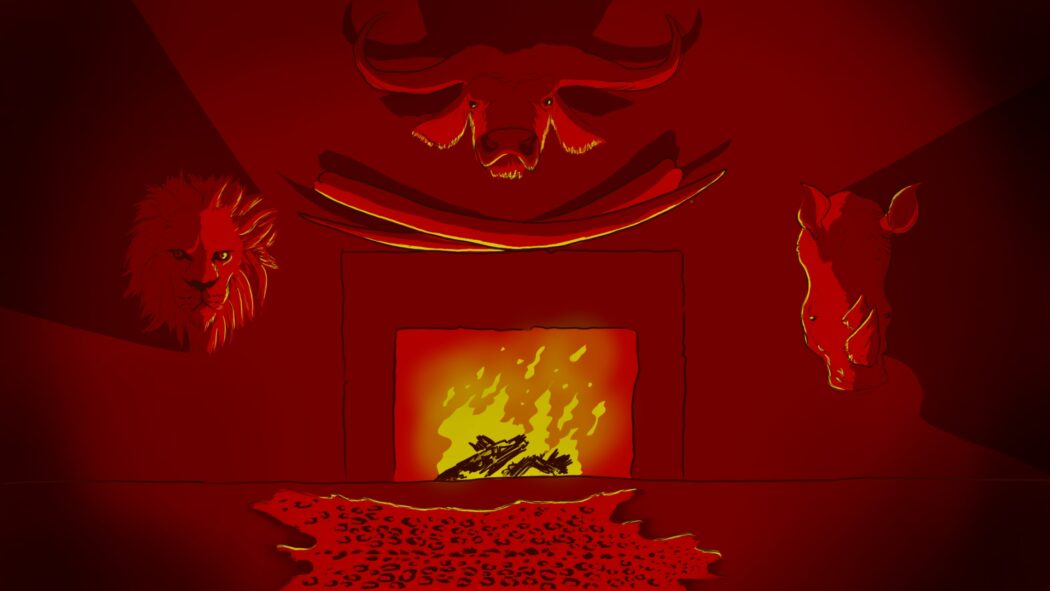Opinion: Trophy hunters have weak arguments
Trophy hunting is not something to be proud of.
Many hunters around the United States will argue that hunting wildlife is a way to help conservation and control the population growth. This is true, to an extent, but it’s a different story when we travel to Africa to see themes of financial greed, controversial studies and corrupted gene pools.
In Africa, some hunters will pay tens or even hundreds of thousands of dollars to kill an animal, even if it is on the endangered species list.
“Honestly the idea of it sickens me,” said Jessica Meeks, a communications studies major and senior at Utah State University. I can’t believe that somebody would want to kill an animal just for sport or to appear ‘manly.’ I don’t think there should be anything to be proud of. It’s irresponsible and inhumane.”
Ignoring animal rights, some studies have been conducted that claim trophy hunting is harmful from the perspective of native Africans.
In an article by Africa Geographic, they analyze a study done by Mucha Mkono from the University of Queensland, which studied social media responses to trophy hunting in Africa.
Many natives felt that trophy hunting perpetuated the unequal balance of power and disrespect from white neo-colonial Westerners who profit off of the land, while the people see very little economic revenue.
The African government is cashing in on game hunting instead of respecting the land of the native people. The government is complicit in Western elites killing the native creatures while they don’t even try to understand the feelings of the natives, expressing only violence when they travel there.
It doesn’t matter how many people try to defend the killing of big game, it is still the cause of many current populations in demise around the continent.
The Roosevelt Network at Cornell University explains while there may be some benefits to legalizing trophy hunting, it is still a reminder of a bygone era without wildlife conservation or regulation, where only the very rich are allowed to hunt.
A common argument for pro-trophy hunting is to help deter poaching. However, it is a hypocritical notion to allow people to hunt big game in the same areas and same ways as illegal poachers. The only real difference is that the African governments sell out to make these hunters, composed of the Western elite, pay incredible amounts of money to kill one animal.
If nothing else, it is a complete waste of money. I don’t care how “fun” or “impressive” it is to kill an innocent animal. It’s not right.
The outright immortality of it all is sickening. Murdering animals, making them suffer in the name of tradition which isn’t really tradition anymore. Hunting should for survival and honest conservation, not for the thrill of an exotic kill.
In an article by Cyril Christo for Changing America, he said, “Elephants were massacred as they haven’t been in 30 years because of a wayward morality spent on the lapels of vanity.”
Students at USU need to advocate for animal rights and help the voices of African natives be heard. The economic inequality, dying gene pool, waste of money, continuance of Westernized privilege overshadowing and exploiting African lands and weak arguments to the contrary are getting out of hand. Everyone needs to be made aware of the near-corrupted system taking place in Africa — and many other parts of the world for that matter — that are ignoring sacred rights and protected preservations.
—
Megan Cowdell is a second-year communications student. She loves going on bike rides, reading mystery novels and watching cheesy movies.
— A02334008@usu.edu
Featured image by Keith Wilson


Fools rush in.
There are 54 countries with 54 governments in Africa, each with their own ideas about conservation. In South Africa, farmers have discovered that raising wild animals on marginal land for hunting and meat is more profitable than cattle. Because of that, they have re-wilded forty million acres of bush and raised at least ten million large animals, providing 50,000 tons of free range. loe carbon, low water organic meat annually. All extra to the animals in the reserves. Trophy hunting is part of that industry – every animal is eaten. Nothing goes to waste. Those forty million acres give home to trillions of animals and birds that are not hunted. Its a conservation miracle, and the numbers of every animal are going up, not down.. Self-financing. Paid for by hunting.
In Kenya, where trophy hunting has been prohibited for thirty years, they have lost 80% of their animals outside the reserves, because without value they are replaced with cows and goats.
Be careful what you wish for
What happened to free speech in Utah??? Scared of the truth, are we?????